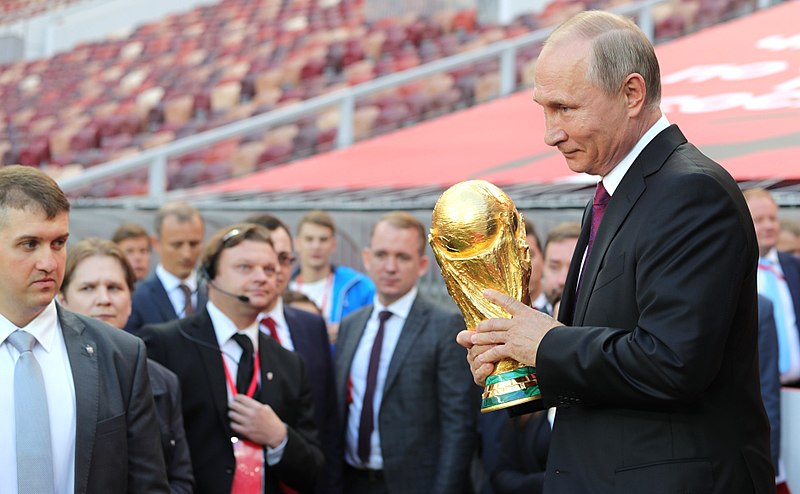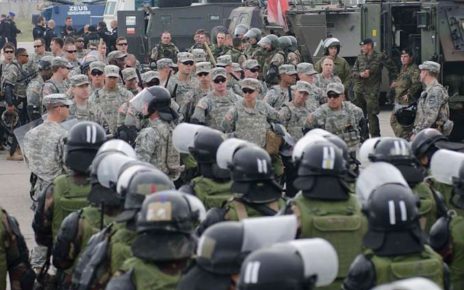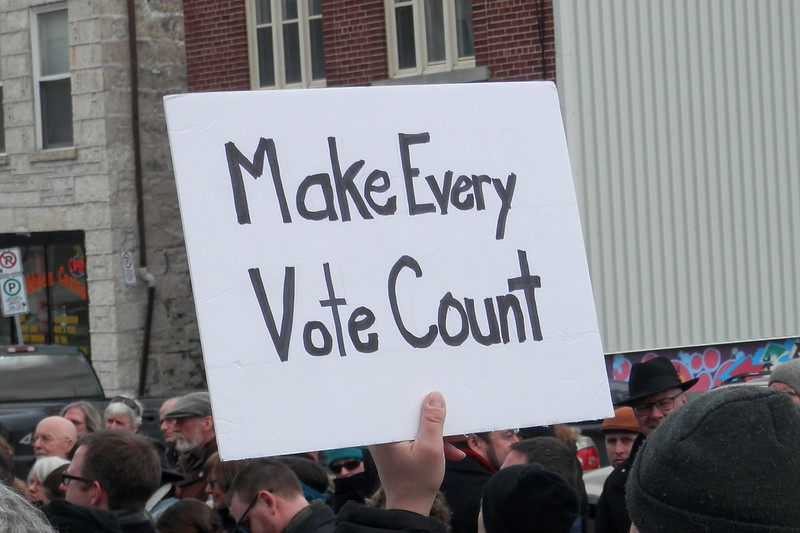Hours before the 2018 FIFA World Cup was slated to begin, Russian President Vladimir Putin thanked FIFA for keeping politics out of sport. The tournament, hosted by Russia, ran from June 14 to July 15. Concerns for fans’ safety dominated early reporting on the World Cup, following particularly brutal clashes between Russian and England supporters during the 2016 UEFA European Championship. However, despite initial concerns, and the Russian government’s entanglement in various international scandals, the 2018 World Cup went off without a hitch. The controversial politician raises an important question: has FIFA kept politics out of sport? Let us investigate.
In recent memory it seems that FIFA has been constantly mired in scandal. Unlike what Mr. Putin’s comments would suggest, the organization often becomes entangled in political machinations, and even human rights issues, due to its global presence. Ahead of the 2014 World Cup in Brazil, the Brazilian government faced intense protests over the World Cup’s $11-billion budget in the face of widespread economic hardship in the country. Who could forget the 2015 FIFA Corruption Scandal, which saw the indictment of FIFA officials over alleged bribes to secure future World Cup hosts? The 2022 World Cup, planned to take place in Qatar, is also facing immense backlash over its use of migrant labour to construct its stadium for the tournament.
A closer look at Russia proves that this tournament was no different. Tensions between England and Russia following the alleged nerve agent attack in Salisbury nearly led to England withdrawing from the tournament. Criticism of the Putin government over its involvement in cyber attacks, the conflict in Ukraine, as well as issues concerning free speech and LGBTQ+ rights cast a noticeable shadow over the tournament, while security was a key concern for the Russian government in ensuring a successful World Cup.
Despite these myriad problems the tournament was a success. International fans lavished praise on social media for a well-organized tournament. Although the pitch invasion by the Pussy Riot protest group during the final caused some embarrassment, Russia enjoyed favourable news coverage throughout the tournament.
In the face of cronyism and scandal, why do nations sign the blank cheque to FIFA and compete to host the international tournament? If we look to Qatar and Russia as examples, it is clear that the motivation behind hosting the tournament is ultimately political. Qatar’s quest to host the FIFA World Cup works hand in hand with its quest for soft-power on the world stage. The linkage between soft-power ambitions and international sport have been characteristic of Russia’s build up to the World Cup as well. A successful World Cup was a way to detract from the various geopolitical skirmishes that the Russian government is currently involved in. At the very least, it brought the Russians closer to their European neighbours, albeit marginally.
Despite the numerous scandals in FIFA’s past, as well as problems in host countries, nations will continue to clamour to host the tournament . Russia was able to make it through the month-long tournament without any major gaffes. The World Cup turned out to be a piece of unusually good press for the often isolationist country. The FIFA World Cup in 2014 drew in 3.2 billion viewers, making it one of the most-watched sporting events in the world. As the world watched Russia, Vladimir Putin may very well have won the World Cup.
Vladimir Putin gave the start to the FIFA World Cup Trophy Tour at the Luzhniki Stadium | Фото пресс-службы Президента России | http://en.kremlin.ru/events/president/news/55582/photos/50316
Disclaimer: Any views or opinions expressed in articles are solely those of the
authors and do not necessarily represent the views of the NATO Association of
Canada.




